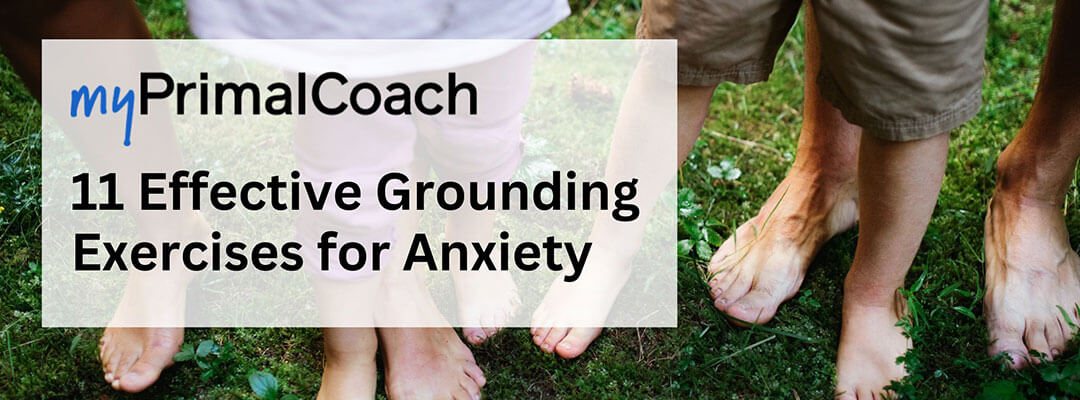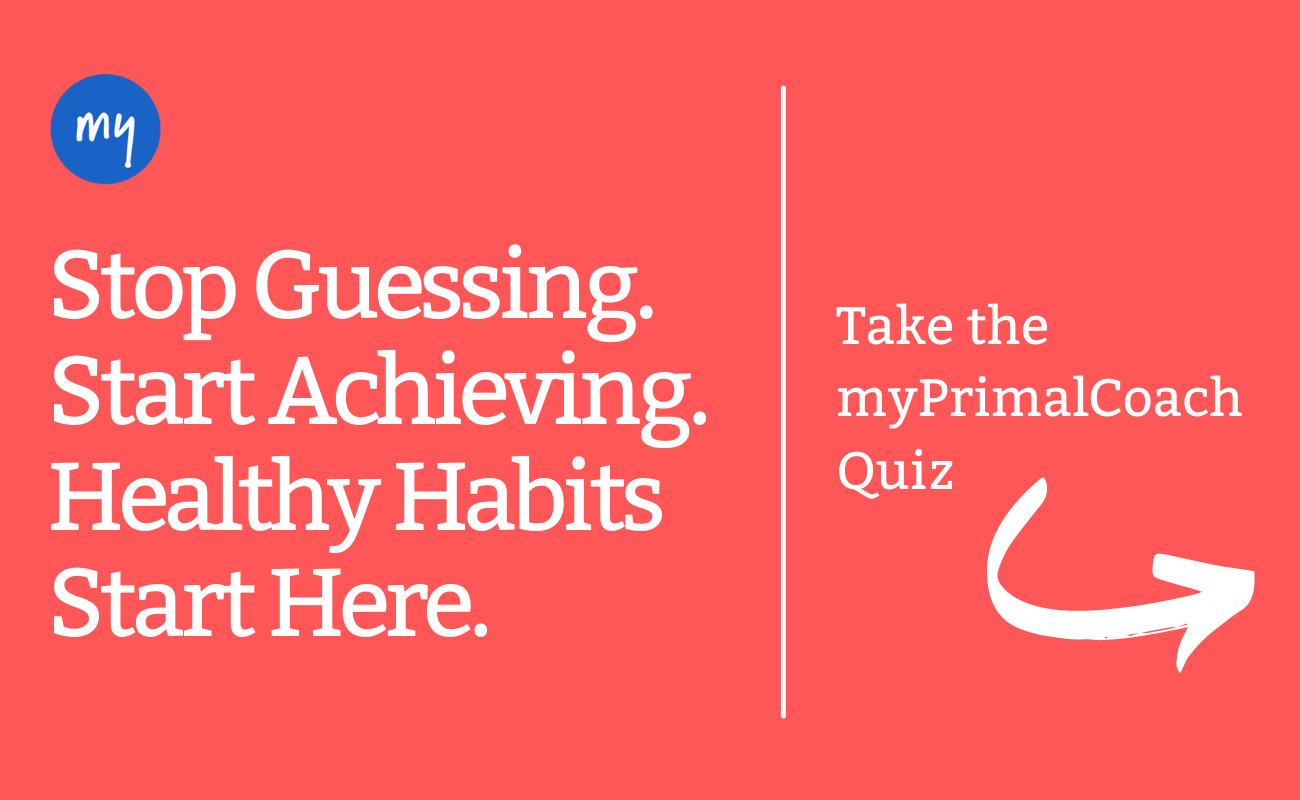Sweaty palms, head spins, and that fluttering in your gut that just won’t go away. Anxiety attacks can effect us all. If you’re on the lookout for a more natural method to ease your symptoms, then this post is for you.
Here we explore 11 grounding exercises for anxiety that will ease your worries and calm your nerves.

Ready to shift your focus and bring your mind back to the present moment? Let’s go!
What Is Anxiety?
Anxiety is our natural response to stress. It’s an apprehension or fear about what’s to come in the future. It often includes physical sensations such as:
- A racing heart
- Elevated heart rate
- Sweating
- Nausea
- Dizziness
- Trembling or shaking
Those butterflies in your belly and stirring in your chest can be highly beneficial—to an extent. Some anxiety can be helpful as it keeps us staying alert, focused, and motivated to take action in stressful moments. A surge of anxiety sure comes in handy during a moment of danger, threat, or even perceived danger.
When anxiety symptoms become excessive or chronic, they can become debilitating. They can interfere with your daily life, and could even develop into a mental health disorder such as generalized anxiety disorder or social anxiety.
Common symptoms of anxiety disorders and excessive anxious thinking include:
- Excessive worry
- Restlessness
- Irritability
- Difficulty concentrating
- Brain fog
- Sleep disturbances
What Is Grounding?
Grounding (also known as earthing) is the term used to describe bodily contact with the Earth. Bodily contact with the Earth’s electrons has been found to elicit an array of beneficial properties including:
- Better sleep
- Improved circulation
- Reduced pain
- Improved well-being
- Reduced stress and anxiety
Grounding exercises for anxiety can ease overwhelming thoughts or feelings. They do this by bringing your focus back to the present moment.
These grounding exercises reduce anxiety by allowing your body to make contact with Earth’s natural surroundings. This can be achieved using any of the five senses, such as:
- Touching your feet on the ground
- Being aware of the temperature of the wind on your skin
- Hearing the sounds around you
Grounding exercises for anxiety may also involve mental exercises such as:
- Counting
- Visualization
- Affirmations
The practice of grounding and getting into the moment can help reduce anxiety, stress, and other negative emotions. Grounding exercises for anxiety can be done anywhere and at any time, making them a handy technique for managing difficult emotions, anxious thoughts, and situations.
11 Effective Grounding Exercises for Anxiety
The evidence-based research on grounding exercises for anxiety is limited and hard to come by, but anecdotal support is strong. Anyone who has ever deep breathed their way through a stressful moment can attest to the power of grounding yourself.
The following 11 grounding exercises for anxiety are well-known physical and mental grounding tips and techniques you can try during moments of strong emotions and unease:
1. 5-4-3-2-1 Exercise
This simple exercise is highly effective at bringing focus back to the present moment by engaging your five physical senses. The method involves taking a moment to identify the following:
-
- Five things you can see
- Four things you can touch
- Three things you can hear
- Two things you can smell
- One thing you can taste (or remember the taste of)
2. Mindful Breathing Techniques
Breathing techniques are a solid way to ground yourself in the present moment and reduce anxiety and stress. Try to take deep breaths in through your nose and out through your mouth and focus on the sensation of the air moving in and out of your lungs.
Here are a few calming breathing sequences you can try:
Deep Breathing: Take a slow, deep breath in through your nose, filling your lungs with air. Hold your breath for a few seconds, and then slowly exhale through your mouth. Repeat for several breaths.
Belly Breathing: Place one hand on your belly and the other on your chest. Take a slow, deep breath in through your nose, feeling your belly rise as you inhale. Hold your breath for a few seconds, and then slowly exhale through your mouth, feeling your belly fall as you exhale. Repeat for several breaths.
Box Breathing: Inhale for a count of four, hold for a count of four, exhale for a count of four, and hold for a count of four. Repeat for several cycles.
Alternate Nostril Breathing: A yogi favorite, close your right nostril with your thumb and inhale through your left nostril for a count of four. Hold your breath for a few seconds, then close your left nostril with your ring or index finger of the same hand and exhale through your right nostril for a count of four. Inhale through your right nostril for a count of four, hold your breath, close your right nostril, and exhale through your left nostril for a count of four. Repeat for several cycles.
3. Muscle Relaxation
Relaxing your muscles is an excellent grounding exercise for anxiety. Find a quiet and comfortable place to sit or lie down, close your eyes, and take a few deep breaths to get into the present moment. Focus on each muscle group in your body, one at a time, starting with your toes and working your way up to the crown of your head. Tense each muscle group for a few seconds, then release the tension and feel it melt into your bed, couch, or chair, moving your way up your body one muscle at a time.
4. Grounding Objects
Carrying a small object with you that you can touch or hold when you feel anxious can help with grounding. Physical items can be used to help you be more present and ward off anxiety. Anything that you find comforting or grounding, such as a piece of jewelry, a stone or crystal, or your favorite keychain or blanket, will work. Just focus on the object and its physical attributes, such as its texture, size, and weight.
5. Move Your Body
Simply going for a walk can help you feel more grounded. Walking will bring your attention to the present moment and the physical sensations in your body. When you walk, especially in nature, you engage your body and senses, which can help shift your focus away from anxious thoughts and feelings. Walking outdoors also provides a sense of connection to nature, which is calming and grounding in and of itself. You can up the grounding ante by focusing on your breathing while walking. Or you can walk barefoot on natural surfaces. This will help cultivate a sense of mindfulness and presence in the moment, a connection with the earth, and will increase feelings of calmness.
6. Pet Your Pet
Pets can provide a sense of calmness and stability, which can help reduce anxiety levels. Simply petting or playing with your pet can release feel-good hormones in the brain, such as oxytocin and endorphins, and lower cortisol levels. This can help ease anxiety symptoms. Pets can also offer a distraction from anxious thoughts and anxiety triggers and provide a sense of purpose and routine.
7. Smell Something Nice
Smelling can be a helpful grounding exercise for anxiety. By focusing on pleasant scents, you can shift your attention away from anxiety and stressful thoughts. Whether it’s a cup of herbal tea, scented candle, essential oil, spice, favorite perfume, or fresh flowers, pleasurable scents come with a calming power. Take a few deep breaths and focus on the scent of your choice while allowing yourself to experience the present moment.
8. Listen to Music
Listening to music is a great grounding exercise for anxiety. Whether it’s classical music, an oldie, your all-time favorite song, heavy metal, or just a soothing melody, your song of choice can help shift your focus away from anxious thoughts. Put on some headphones, turn up the volume, and allow yourself to really listen to the music. Focus on the notes, the melody, the rhythm, and the lyrics. Allow yourself to be distracted into the present moment. Even singing to yourself can have the same calming effect.
9. Recite Some Affirmations
Saying your favorite powerful affirmations can be a grounding exercise for anxiety. Positive statements can help shift your focus away from anxious thoughts and towards more empowering beliefs that help you feel more in control. You can choose any affirmations that are meaningful to you and repeat them to yourself throughout the day. Reciting affirmations helps you:
- Focus on the present moment
- Let go of worries about the past or future
- Boost your confidence
- Get through stressful and anxiety-inducing situations
10. Visualization
Visualization is a strong grounding exercise that can help create a sense of calm and relaxation. It requires no equipment and you can do it anywhere and at any time. Simply close your eyes and take a deep breath, and imagine yourself in a peaceful place that makes you feel safe. Whether it’s at the beach, in a forest, the mountains, a hammock, or anywhere else. What matters is that this spot makes you feel calm and relaxed. Picture all of the small details of this place including the colors, the smells, the sounds, the feel of the air on your skin. The more details and the longer you stay, the more relaxed and grounded you will feel.
11. Play With Numbers
Whether you try counting backward from one hundred, going over a times table in your head, or counting in a foreign language, playing with numbers can help bring you into the present moment and get your mind off your anxious thoughts. It’s a simple technique that you can do out loud or keep to yourself in your head. If your mind starts to wander, gently bring it back to the counting and keep going.
Summary
There are tons of grounding exercises for anxiety. In this post we’ve selected out top 11 for you to try. If you try one and don’t feel your anxiety lift, move your way down the list until you find what technique works best for you. Worrying may be one of life’s challenges, but grounding exercises are a tool that can help in managing negative or challenging emotions. Stress management is an essential facet of overall optimal health that a myPrimalCoach can help you achieve.
Please note that if you suffer from any mental health issues, it’s important to seek professional help. If you are dealing with any mental health conditions, such as depression, bipolar disorder, or post-traumatic stress disorder (PTSD), it is always best to seek assistance from a mental health professional. Counseling from psychologists and licensed medical professionals trained in cognitive behavioural therapy and trauma-focused cognitive behavioural therapy is a critical component of treatment.

